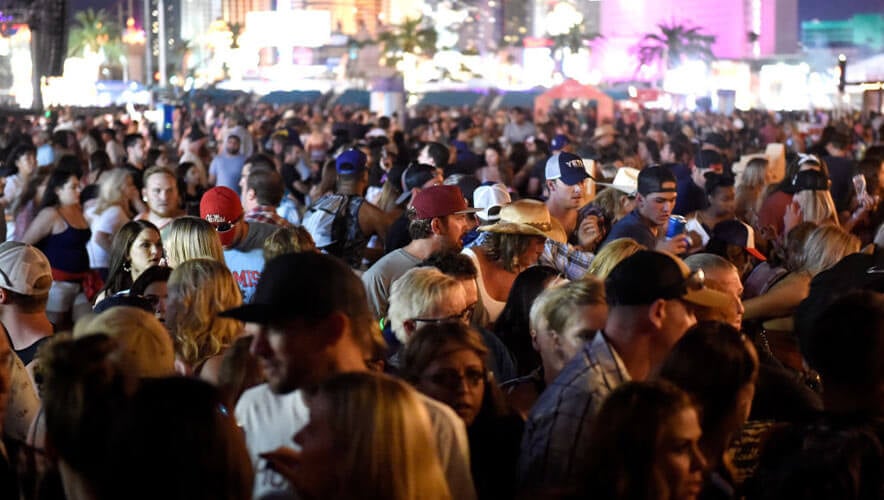Staffing Security While Restocking the Talent Pool
The end of the first quarter of 2022 came with some good news from the U.S. Bureau of Labor Statistics. Unemployment was almost back to pre-pandemic levels. In February 2020, the percentage of unemployed people in America was 3.5 percent. That figure rocketed to 14.7 percent the very next month and has slowly gone down in the intervening years. As of the end of March 2022, only 3.6 percent of the U.S. population was unemployed.
Despite these nationwide improvements in the number of people participating in the workforce, hiring and retaining qualified security staff continues to be a challenge. In the 2021 Security Benchmark Report, security leaders across all sectors identified staffing and training as one of the top 10 critical issues facing the industry.
The pandemic was taxing for security workers. Many workers were laid off during this season of tension in confusion in communities across the nation. Also during this period, there was a spate of crimes targeting security officers and police. These are just some of the factors driving former security personnel toward less risky careers.
With the worst of the pandemic behind us, we now have a fully open retail sector being targeted by organized crime rings, as well as kids emboldened by social media challenges to steal merchandise. Hospitals are still full but scrambling to fill security posts. Events and venues are packing people in once again but struggling to find ample security.
There are many jobs open, but not a lot of people lining up to fill them. So, how are companies balancing the need to secure products, employees, and customers amid the staffing shortage?
Getting Creative to Address Staffing Shortages
Just as a business might call on a temp agency, security teams are tapping into off-duty police officers to fill the bench until the security workforce rebounds. Outsourcing the process of identifying, staffing, paying, and insuring third-party security frees leadership to focus on recruiting and the big picture security strategy.
Here are a few examples of how leaders in a few key industries—including healthcare, retail, and event venues—strategically deploy off-duty officers to supplement security programs, make it work within budget, and achieve or exceed security goals.
Healthcare
Houston Methodist Healthcare System takes a hybrid approach to security staffing, with both security officers and a cohort of off-duty officers from the Houston Police Department on its regular security team. To justify the higher cost of engaging police officers in its staffing matrix, Methodist strategically places officers in sensitive areas of the hospitals (psychiatric facilities, emergency departments, etc.).
According to Houston Methodist’s system-wide public safety director, Hadji Sarr, “Officers bring a higher degree of training to the post and have authority to intervene and deescalate challenging situations.”
As a third layer to its staffing strategy, Houston Methodist outsources staffing and management of off-duty officers to a third party. By using an outside provider, the hospital can tap into a variety of different law enforcement agencies, which is more than the in-house team wanted to juggle. This strategy has paid dividends during security spikes, like during vaccine rollouts, vaccine mandates for staff, and Gulf Coast weather events like hurricanes.
Retail
Following a rash of robberies in select stores, the security director for a large wireless provider engaged off-duty officers to staff those high-crime stores during the hours that crimes were most often committed.
To test the solution, the retailer started small by conservatively placing officers in a handful of stores that were consistently targeted by criminals. These locations were losing an average of $25,000 per month in mobile phones and accessories. In certain locations, officers were able to park marked cars outside of the store. In all locations for this pilot phase of the engagement, an armed officer was on site during business hours in full uniform.
There were several observable instances where known criminals came to the site, saw the officer, and turned around. They knew that the presence of an officer means they will be arrested on the spot if they attempt theft. Given the effectiveness of having officers on site, the program expanded to 30 stores with asset loss issues.
The retailer now budgets $500 per month for theft and shrinkage. For the 30 stores where it now has officers, loss is down to $180,000 per year from $750,000 per year before it brought in officers.
Entertainment
The entertainment sector has emerged from the pandemic with a unique set of security challenges. After a year of people being away from the social sphere and widespread civil unrest in the United States in 2020 and 2021, several venues have experienced a sharp increase in aggressive behavior of patrons upon reopening.
Entertainment was also uniquely challenged on the staffing front. Venues were closed for so long. Some are having to rebuild security teams from the ground up, and they are paying premium for new hires. Given the high cost of attracting and retaining new staff, entertainment sites are discovering they can meet safety goals within budget using local off-duty officers who are trained to deliver the services they most need, specifically de-escalating tense situations, preventing disgruntled patrons from resorting to physical violence, or removing and arresting them if necessary.
Security leaders in entertainment are charged with protecting their venue’s brand, its employees, and patrons. They are tasked with creating and maintaining a safe and welcoming atmosphere to grow patronage and the bottom line. This higher level of physical security helps meet those goals.
Though these current workforce times are challenging, most security leaders believe that conditions are starting to and will continue to improve. The problem wasn’t created overnight and won’t disappear overnight. Today’s security solutions require a little outside-the-box thinking.
Mike Daley, vice president at Summit Off Duty Services, is an 18-year veteran of the security services industry. Throughout his career, Daley has built successful security programs in both public and private sectors. Prior to Summit, Daley held a variety of leadership positions with Allied Universal, as well as related industry associations such including ASIS and IAHSS (International Association of Healthcare Safety and Security), and he held the role of a Terrorism Liaison Officer (TLO) through the Colorado Fusion Center and Department of Homeland Security.










